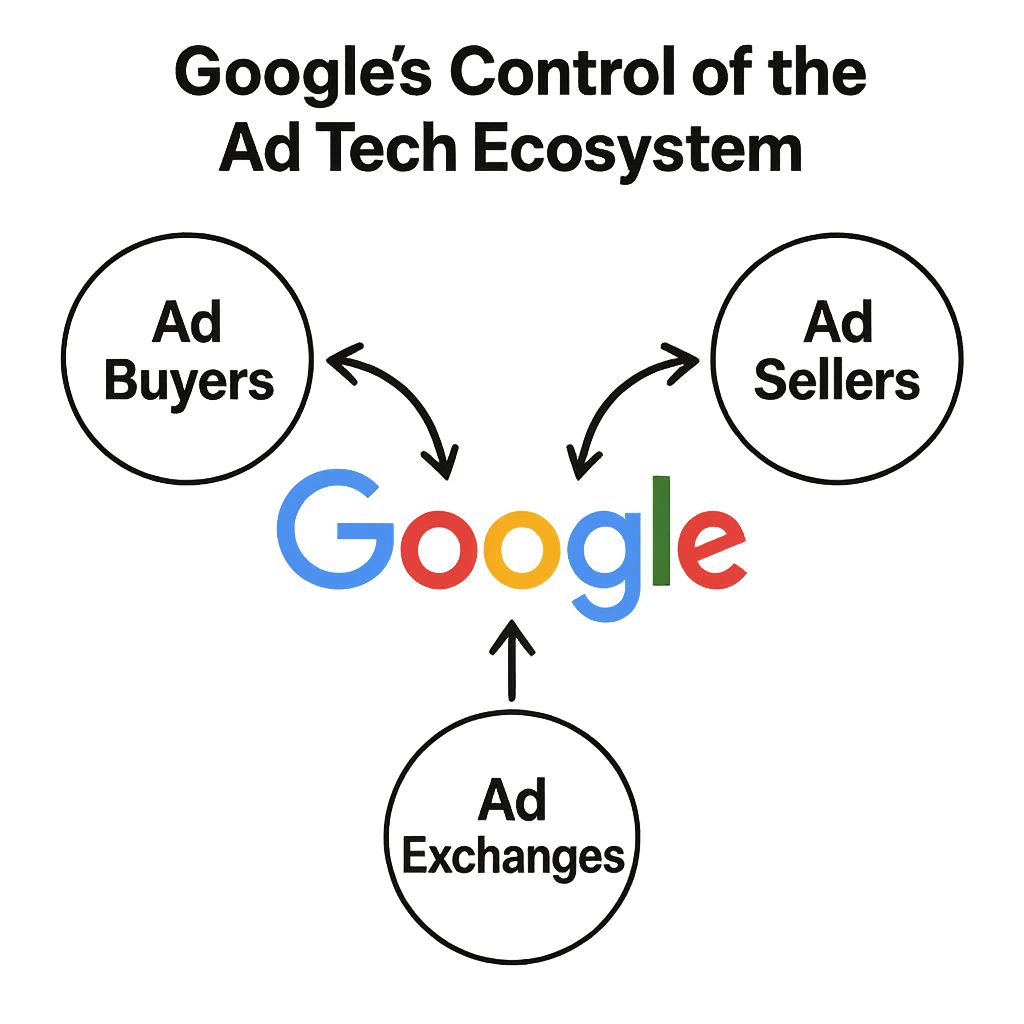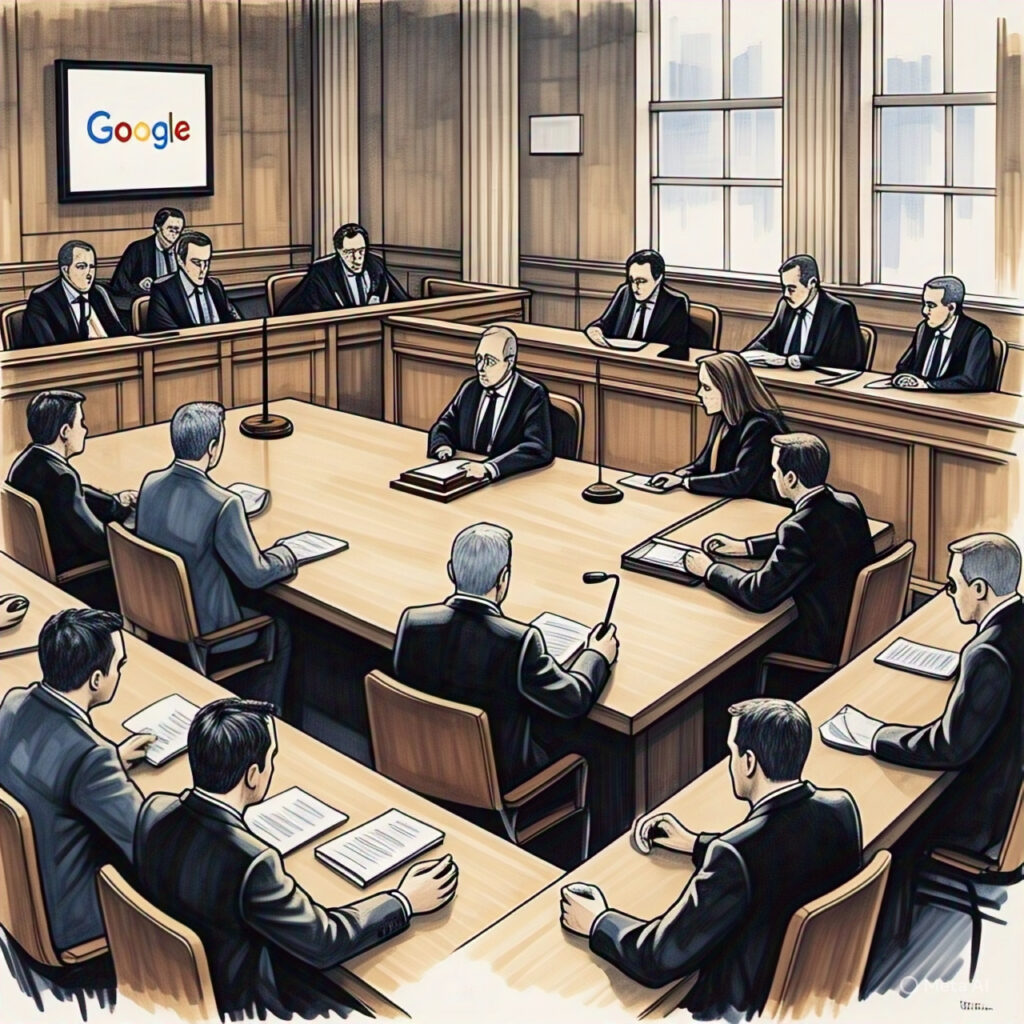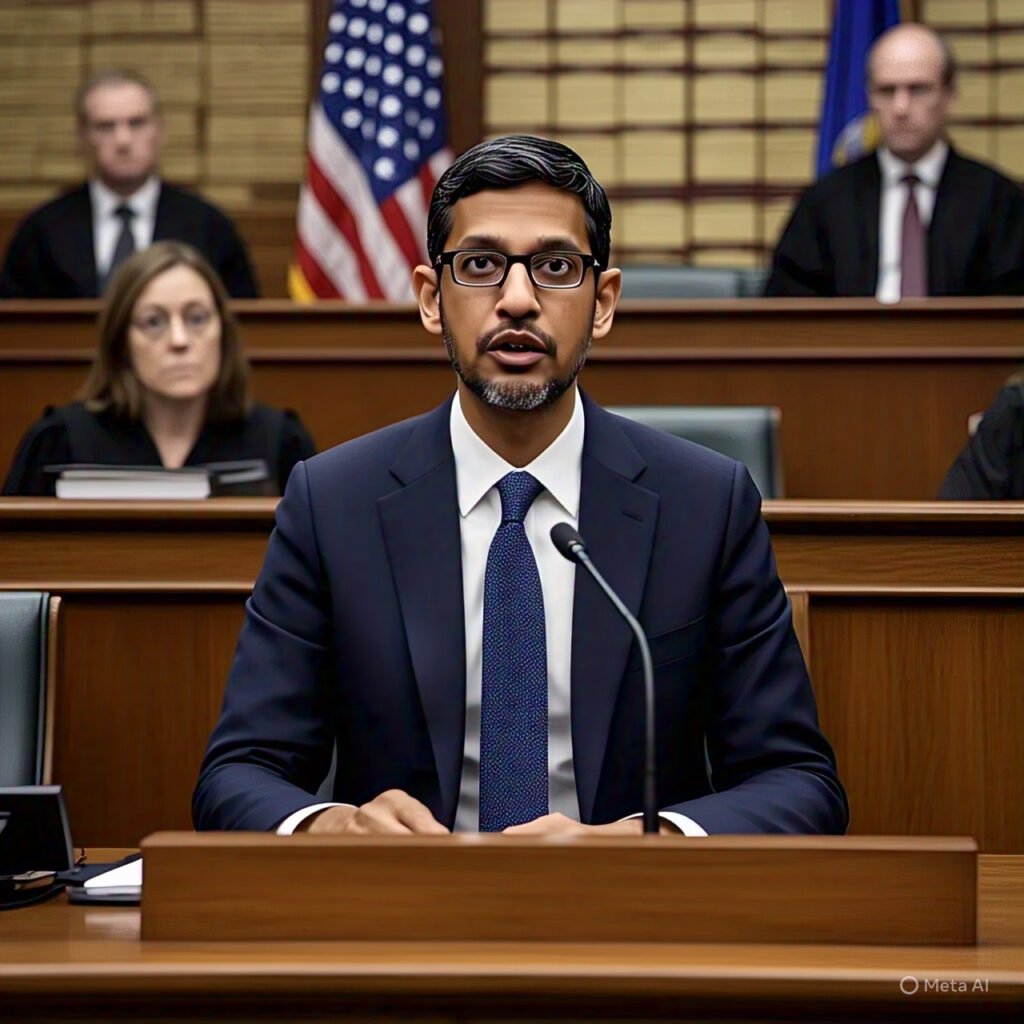Is the Google Ad Tech Monopoly Finally Cracking? Let’s Find Out🚨
Have you ever wondered why the ads you see follow you from website to website like a stalker? 😨 You’re not alone. The answer lies in a powerful empire built by Google—an empire now at risk of being dismantled.
The U.S. government has accused Google of running a dangerous monopoly in the ad tech world—a business that affects almost every online publisher and advertiser. And now? The government wants to break it apart.
🧠 After analyzing everything across the internet and gathering real-world insights, the Bhussan.com team brings you this honest, easy-to-digest breakdown of what’s happening and why it matters to everyone on the internet, including you.
What is the Google Ad Tech Monopoly? And Why Is It a Big Deal?🧩
The term Google Ad Tech Monopoly refers to the dominant control Google has over nearly every step of the online advertising pipeline:
-
Google owns tools for publishers (like websites) to sell ad space.
-
Google owns tools for advertisers to buy that ad space.
-
Google runs the exchange where buying and selling happen.
-
Oh—and Google also runs Chrome, the browser most people use to view those ads.
📊 That’s like running the stadium, the teams, the scoreboard, and the referee in a football match—and still claiming it’s a fair game.
Why it’s a problem:
-
Advertisers and publishers have limited choices.
-
Google takes a big cut from both sides.
-
New companies struggle to compete.
-
The flow of money is heavily tilted toward Google’s pockets.


DOJ vs Google: What Is the U.S. Government Saying?⚖️
The U.S. Department of Justice (DOJ) officially filed an antitrust lawsuit against Google in 2023. Here’s what they claim:
-
Google has illegally monopolized digital advertising for over 15 years.
-
Through acquisitions like DoubleClick, Google eliminated fair market competition.
-
It forces publishers and advertisers to use its tools to be competitive.
-
The dominance harms everyone except Google.
Their demand?
👉 Break up Google’s ad tech business.
👉 Possibly even sell off Chrome to stop it from being used as a monopoly weapon.
📅 The trial is scheduled for September 2025. This could change the internet forever.

Google’s Defense: “We’re Not the Bad Guys”🔍
Of course, Google has its own side of the story. Here’s what they’re saying:
-
Breaking us up will make ads worse, not better.
-
User privacy could be at risk if data-sharing rules are forced.
-
Small businesses might suffer because Google tools are affordable and effective.
CEO Sundar Pichai even testified in court that these proposals are “extraordinary” and would have “unintended consequences.”
🧠 Does that sound like a fair defense? Or is it just big tech being scared of losing control?
Why This Case Matters Globally🌍
You might be thinking—“Okay, this is happening in the US, why should I care?”
Because this trial is a domino. If the DOJ wins:
-
🇪🇺 The European Union could follow suit.
-
🌎 Other countries might regulate tech giants harder.
-
📉 Google might have to split its businesses worldwide.
This isn’t just about ads. It’s about how the internet is shaped, who controls it, and what that means for everyone’s online experience.

Pros and Cons of Breaking Up the Google Ad Tech Monopoly
| ✅ Pros | ❌ Cons |
|---|---|
| More fair competition | Potential disruption to existing platforms |
| Lower ad costs for advertisers | Publishers might need to use multiple ad platforms |
| Increased innovation from smaller firms | User experience could change (temporarily) |
| Less centralization of user data | Google might slow down new features or updates |
30 Quick FAQs About the Google Ad Tech Monopoly
-
What does the term “Google Ad Tech Monopoly” mean?
It refers to Google’s control over most parts of the digital advertising process. -
Who filed the case against Google?
The U.S. Department of Justice (DOJ). -
What is the DOJ asking for?
To break up Google’s ad tech business and possibly sell Chrome. -
When is the next trial date?
September 22, 2025. -
Why is Chrome part of the lawsuit?
Because it gives Google control over how people access the web and ads. -
What happens if Google loses the case?
They may be forced to split their ad tech business into separate entities. -
Will this change online ads for users?
Possibly. It may reduce ad targeting or shift how ads appear. -
Could other tech companies be affected?
Yes. Meta, Amazon, and others could face increased scrutiny. -
Does Google really own the whole ad pipeline?
Not 100%, but a major portion—including the tools, auction, and delivery. -
What is AdX?
Google’s ad exchange platform—like the stock market for ads. -
What specific markets did the court find Google monopolized?
The court determined that Google illegally monopolized the publisher ad server market and the ad exchange market for open-web display advertising. (PYMNTS.com) -
What is a publisher ad server?
It’s a tool that helps website publishers manage, deliver, and track advertising on their sites. -
What is an ad exchange?
An ad exchange is a digital marketplace that facilitates the buying and selling of online ad inventory from multiple ad networks. -
How did Google allegedly tie its services to maintain dominance?
The DOJ argued that Google unlawfully tied its publisher ad server (DFP) with its ad exchange (AdX), forcing publishers to use both services together, thereby stifling competition. (Wikipedia) -
What remedies is the DOJ seeking?
The DOJ is pushing for structural remedies, including the divestiture of Google’s publisher ad server and ad exchange businesses, to restore competition in the digital advertising market. (Financial Times) -
When is the remedies trial scheduled?
The trial to determine the appropriate remedies is set for September 22, 2025. (Reuters) -
Has Google responded to the ruling?
Yes, Google has stated its intention to appeal the decision, arguing that the proposed remedies could harm the digital advertising ecosystem. (Reuters) -
What impact could this case have on online advertising?
If the DOJ’s proposed remedies are implemented, it could lead to increased competition, potentially lowering ad prices and providing more choices for advertisers and publishers. -
Are there other antitrust cases against Google?
Yes, Google faces multiple antitrust challenges, including cases related to its search engine dominance and app store practices. (New York Post) -
What precedent does this case set?
This case marks one of the most significant antitrust actions against a tech company in recent years, potentially setting a precedent for how digital monopolies are addressed. -
How does this affect small publishers?
Increased competition in the ad tech space could provide small publishers with more options and potentially better revenue-sharing terms. -
What role did acquisitions like DoubleClick play?
The DOJ argued that Google’s acquisition of DoubleClick allowed it to dominate the ad tech stack, consolidating its control over digital advertising. -
Did the court find all of Google’s ad practices illegal?
No, while the court found Google monopolized certain markets, it did not find all of its ad practices or acquisitions inherently illegal. -
What is the significance of the Sherman Act in this case?
The Sherman Act is a foundational antitrust law in the U.S. The court found Google violated Sections 1 and 2 by engaging in monopolistic practices. (The Verge) -
How might this affect advertisers?
Advertisers could benefit from a more competitive market, potentially leading to better pricing and service options. -
Is there international interest in this case?
Yes, regulators worldwide are closely watching the outcome, as it could influence global antitrust enforcement in digital markets. -
What is the potential impact on consumers?
Consumers might experience changes in ad targeting and privacy practices, depending on how the market adjusts post-remedies. -
Could this lead to the breakup of other tech giants?
While this case focuses on Google, a successful DOJ action could embolden further antitrust scrutiny of other major tech companies. -
What arguments did Google present in its defense?
Google contended that its ad tech products benefit consumers and publishers and that the market remains competitive. -
What are the next steps in the legal process?
Following the remedies trial in September 2025, the court will decide on the appropriate actions to address the antitrust violations.
Final Thoughts: Is This the End of the Ad Tech Empire?
If the DOJ wins, this could be one of the biggest tech breakups since Microsoft in the early 2000s. But it’s not just about breaking things up—it’s about fixing a system that many say has become unfair.
You might not feel the impact immediately, but over time? A more competitive ad space could lead to better user privacy, fairer pricing, and more innovation.
So, what do you think? Is it time for Google’s ad tech empire to be broken up?
👉 Let us know in the comments or share your opinion on social media.

